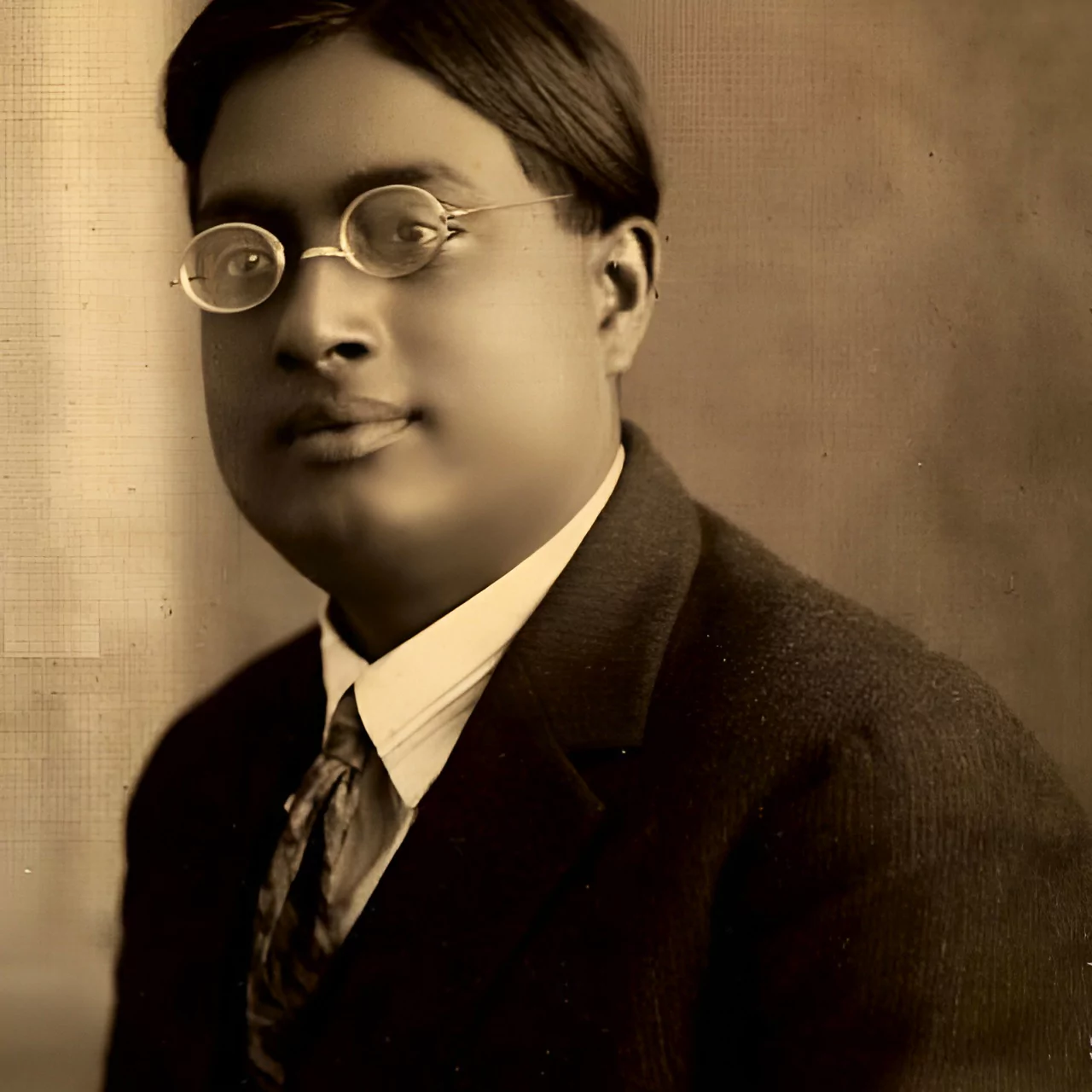Context:
Recently, a 5-day International Conference on Photonics, Quantum Information, and Quantum Communication, was organised by the Satyendra Nath Bose National Centre for Basic Sciences in Kolkata.

- A century ago, Satyendra Nath Bose’s work joined the ranks of pivotal publications in quantum mechanics, alongside Planck (1900), Einstein (1905), and Niels Bohr (1913).
About Satyendra Nath Bose
Satyendra Nath Bose was an Indian mathematician and physicist, an expert in theoretical physics. His contributions helped improve the Standard Model of Particle Physics.
Birth: Calcutta (now Kolkata) in 1894.
Academic Life: By the age of 15, pursued a Bachelor of Science degree at the Presidency College
- Finished his MSc in Mixed Mathematics in 1915.
Inspired by: Jagdish Chandra Bose and Prafulla Chandra Ray.
Career: Lecturer at Calcutta University, along with astrophysicist Meghnad Saha.
- Bose and Saha published English translations of Albert Einstein’s special and general relativity papers.
- Went to Europe to work for two years at X-ray and crystallography laboratories alongside Albert Einstein and Marie Curie.
- Returned to India and was appointed professor of physics and then Head of Department at Dhaka University in 1927.
- In 1945, he returned to the University of Calcutta and retired in 1956.
- Vice-Chancellor of the Visva-Bharati (1956-58).
Breakthrough: He had derived Planck’s law for black body radiation (which refers to the spectrum of light emitted by any hot object) without any reference to classical electrodynamics.
- Bose asked Albert Einstein to review his research paper in 1924.
- Impressed by Bose’s findings, Einstein arranged for the publication of the paper and also translated it into German.
Death: February 4, 1974, after a severe heart attack at the age of 80.
Recognitions to Satyendra Nath Bose
- Padma Vibhushan: Satyendra Nath Bose received the Padma Vibhushan, the country’s second-highest civilian honour from the Indian government in 1954.
- National Professor: Appointed as National Professor, the highest honour in India for scholars.
- Rabindranath Tagore dedicated his only book on science – Vishwa Parichay to SN Bose.
- Rajya Sabha member from 1952 to 1958.
- Bose was nominated for the Nobel Prize in Physics.
- Establishment of S. N. Bose National Centre for Basic Sciences, Kolkata: S. N. Bose National Centre for Basic Sciences, an Autonomous Research Institute established under Department of Science and Technology (DST), Government of India in 1986 to honour the life and work of Professor S. N. Bose
- Bosons named after S N Bose: Bosons are a class of elementary subatomic particles in particle physics that were named after Satyendra Nath Bose to commemorate his contributions to science.
|
Contributions of Satyendra Nath Bose
- Bose-Einstein Condensate: It predicted that at very low temperatures near absolute zero, all particles will condense into a single state, called Boson. It is also known as the Fifth state of matter.
- Derived Planck’s law – Planck’s Law was discovered by Max Planck.
- Planck’s law was correct, but its derivation was not correct.
- By treating radiation as a gas of photons (Photon gas) and using new statistical techniques for counting photon states, Bose provided a new derivation of Planck’s law.
- Bose-Hubbard Model: His work inspired the development of the Bose-Hubbard model which describes the behaviour of ultra-cold atoms trapped in an optical lattice.
- It has applications in quantum computing and quantum simulation.
- God Particles:
- In the 1960s, Peter Higgs carried out further research using Bose-Einstein Statistics and wrote a paper about a very unstable particle that survives for a fraction of a second after its birth, and then it breaks apart producing other fundamental particles.
- He called this particle “Higgs Boson Particle” or “God Particle”.
Also Read: Bharat Ratna Awards 2024: Award Winner List
News Source: The Hindu

